Describe an Interesting Talk or a Lecture You Have Heard - IELTS Cue Card Sample Answers
7 min read
Updated On
-
Copy link
Prepare for IELTS Speaking Part 2 by practicing cue card topics like ‘Describe an Interesting Talk or a Lecture You Have Heard’. Learn how to create fluent answers by utilizing sample answers & relevant vocabulary and achieve a band score of 7 or higher.
Table of Contents
- Describe an Interesting Talk or a Lecture You Have Heard.
- Describe an Interesting Talk or a Lecture You Have Heard - Sample Answer 1
- Describe an Interesting Talk or a Lecture You Have Heard - Sample Answer 2
- Describe an Interesting Talk or a Lecture You Have Heard - Sample Answer 3
- Vocabulary You Can Use For IELTS Speaking Part 2 Questions on Describe an Interesting Talk or a Lecture You Have Heard

Limited-Time Offer : Access a FREE 10-Day IELTS Study Plan!
The IELTS Speaking Part 2, also known as the cue card round, tests your ability to speak fluently for 1–2 minutes on a given topic. Many candidates find this section tricky due to the limited prep time and the need to organize thoughts quickly. To improve this skill, it’s essential to practice with real cue card questions, expand your vocabulary, and learn how to structure your responses effectively.
In this blog, we cover the topic “Describe an Interesting Talk or a Lecture You Have Heard” – a commonly asked cue card question in IELTS Speaking Part 2. The blog includes a band 8+ sample answer, a list of useful IELTS vocabulary, and tips to help you answer confidently and naturally in the actual test, to help you boost your overall IELTS band score.
Describe an Interesting Talk or a Lecture You Have Heard.
You should say:
- When it was?
- What it was about?
- What did you learn from it?
- And explain why you think it was interesting.
Describe an Interesting Talk or a Lecture You Have Heard - Sample Answer 1
Most people tend to avoid sitting through lectures and seminars because they find it to be a tiresome experience. However, there are instances where such lectures and talks end up becoming an enriching experience for many individuals. One such lecture that piqued my interest and turned out to be a valuable event for me was when I attended a presentation specially organized by my college for the students. It was during the 2nd semester of college, and everyone from our batch was supposed to be a part of this event.
The lecture was about the importance of time management during college life and it was given by a visiting professor. The initial reaction of most of my classmates was annoyance since our college professors had made sure that no one was able to bunk this lecture. Even though my attitude towards this lecture was casual at first, I started to pay attention as the lecturer began his monologue. Within a few minutes of paying attention to what was being said, I was engrossed with some of the facts being presented. The professor went on to shed light on some of the reasons why college students face the issue of poor time management. The lecture also addressed some of the activities, that are common among people our age which take up a substantial portion of our time but doesn’t add considerable value to our lives.
As the lecture progressed, I realized that most of the statements were relatable to what many of my peers have experienced including myself. I learned the importance of prioritizing my activities and how much easier it becomes to accomplish our tasks if we follow an organized schedule. By the end of the lecture, I felt motivated to change my daily routine and implement some of the strategies offered by the professor in my own life.
Enroll in our IELTS Online Classes to boost your IELTS Speaking Skills!
Describe an Interesting Talk or a Lecture You Have Heard - Sample Answer 2
During my college days, I’ve had the pleasure of hearing many fascinating talks and lectures.
The lectures I am going to talk about took place at my college conference hall around 2 years ago. I don’t usually take much interest in talks and lectures. However, certain lectures pique my interest. During one of my regular class lectures, one of the instructors invited all students to a guest lecture. So I went to the notice board to see what the lecture topic was, which turned out to be happiness. I decided to attend the seminar right away.
The lecturer began his talk by asking questions such as, “What makes you happy?” and “What makes you want to be happy?” He then engagingly crafted his speech, including some intriguing numbers and responses that may come to people’s minds. He talked about the concerns and causes of people’s suffering in such a common and pushy manner. People are imbued with the belief that in order to be happy and acquire a level of bliss, one must suffer. During the lecture, one guy brought up a topic that really caught my attention: the value of happiness in life and why people are chasing happiness through worldly items when we would eventually have to leave everything behind after death. The instructor said that it is what gives life its meaning. Humans’ lives would become meaningless if they do not chase things, yet they should not become greedy. When the professor finished, I realized that happiness is a personal condition of a being. Pleasure should not be dependent on others; rather, it should stem from your own successes and not be stifled by comparisons to other people’s happiness.
Describe an Interesting Talk or a Lecture You Have Heard - Sample Answer 3
One of the most interesting talks I’ve ever heard was a TED Talk I watched online around six months ago. It was given by Sir Ken Robinson and was titled “Do Schools Kill Creativity?” This particular talk left a lasting impression on me because it challenged the conventional ideas of how education systems work around the world.
The talk focused on how traditional education often prioritizes academic subjects like maths and science over creative subjects such as art, music, and drama. Sir Ken argued that this approach can suppress children's natural creativity and talents. He used humor and real-life examples to make his points more relatable and engaging, which kept the audience, including me, fully attentive throughout.
From this talk, I learned that creativity is just as important as literacy and should be treated with the same status in schools. It made me reflect on my own education and how little time was dedicated to developing creative skills. Since then, I’ve started making more time for creative activities like writing and sketching in my free time.
Overall, the lecture opened my eyes to the importance of a more balanced and inclusive education system, and it truly changed the way I think about learning and teaching.
Vocabulary You Can Use For IELTS Speaking Part 2 Questions on Describe an Interesting Talk or a Lecture You Have Heard
Given below is the list of words related to the topic, Describe an Interesting Talk or a Lecture You Have Heard IELTS cue card, that will expand your latest IELTS Speaking vocabulary to boost your score.
|
Word/Phrase |
Meaning |
Example Sentence |
|---|---|---|
|
Enriching |
improving the quality or value of something by adding useful or enjoyable elements |
Volunteering abroad turned out to be an enriching experience that reshaped her priorities. |
|
Piqued |
aroused or stimulated, especially curiosity or interest |
His sudden silence piqued her curiosity more than any explanation could have. |
|
Monologue |
a long speech by one person during a conversation or performance |
The comedian’s dramatic monologue had the audience laughing nonstop. |
|
Engrossed |
giving all attention to something |
She was so engrossed in the puzzle that she forgot to eat dinner. |
|
To shed light on |
to make something clearer or easier to understand |
Recent research has shed light on why some plants thrive in extreme climates. |
|
Intriguing |
very interesting because of being unusual or mysterious |
The abandoned house had an intriguing history that locals whispered about. |
|
Imbued |
filled with a particular quality or feeling |
The artwork was imbued with a quiet sense of melancholy. |
|
Stem from |
to be caused by or result from something |
Many health problems stem from prolonged stress rather than genetics. |
|
Left a lasting impression |
had a strong effect that continues to be remembered |
Her kindness during a difficult time left a lasting impression on everyone she met. |
|
Inclusive |
including everyone and not excluding any particular group |
The new workplace policy promotes an inclusive environment for all employees. |
|
Stifled |
prevented from developing, expressing, or breathing freely |
His creativity felt stifled by the rigid rules of the organization. |
|
Thought-provoking |
making people think seriously about a subject |
The novel was thought-provoking enough to spark debates for weeks. |
|
Insightful |
showing deep understanding |
Her comments during the meeting were surprisingly insightful. |
|
Captivating |
holding attention completely |
The dancer’s performance was so captivating that the crowd stood frozen. |
|
Well-structured |
organized in a clear and logical way |
The manual was well-structured, making it easy to follow without guidance. |
|
Articulate |
able to express ideas clearly and effectively |
He is articulate enough to explain complex ideas to young children. |
To conclude, describing an interesting talk or lecture is not about recalling every detail but about demonstrating clarity, vocabulary range, and the ability to express personal engagement. So, practice recent IELTS Speaking topics for Part 2 and 3 and master the skill of transforming a simple experience into a compelling narrative that leaves a strong impression on the examiner.
Useful Links:
- How to Prepare a Cue Card for IELTS Speaking
- What to Do if You Forget What to Say During IELTS Speaking Test?
- Latest IELTS Speaking Vocabulary to Boost Your Score
- How to Express Your Mixed Feelings in IELTS Writing & Speaking?
- 10 Useful Structures to Express Contrasting Ideas in IELTS Speaking & Writing Task 2
- 75+ Common English Words Used in IELTS Speaking Test
- 5 Silly Things You Say To Decrease Your IELTS Speaking Band Score
- Reasons for the IELTS examiner to interrupt you in IELTS Speaking

Start Preparing for IELTS: Get Your 10-Day Study Plan Today!
Explore other Cue Cards
Recent Articles

Haniya Yashfeen
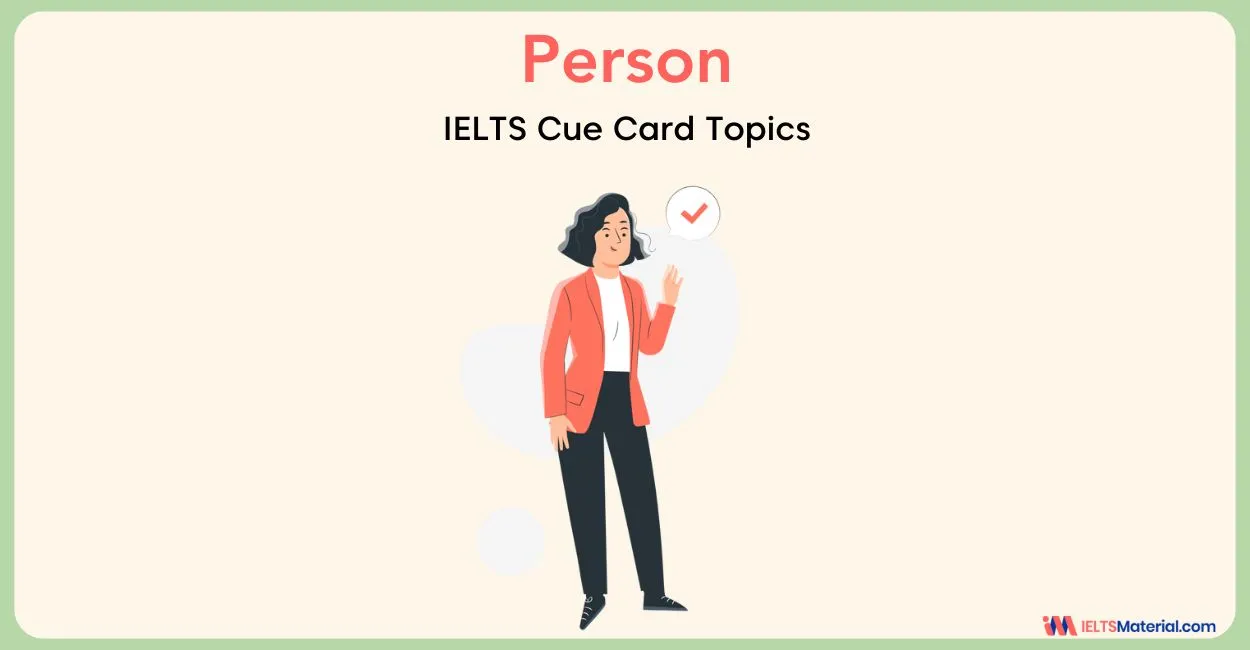
Kasturika Samanta

Nehasri Ravishenbagam
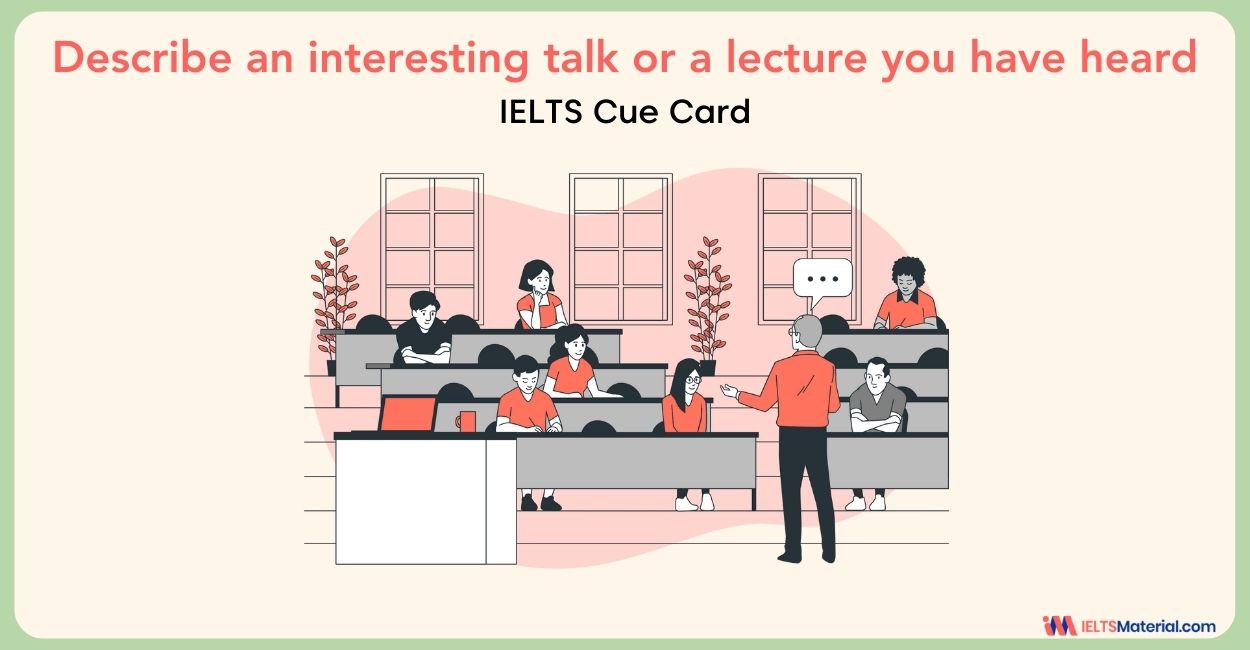

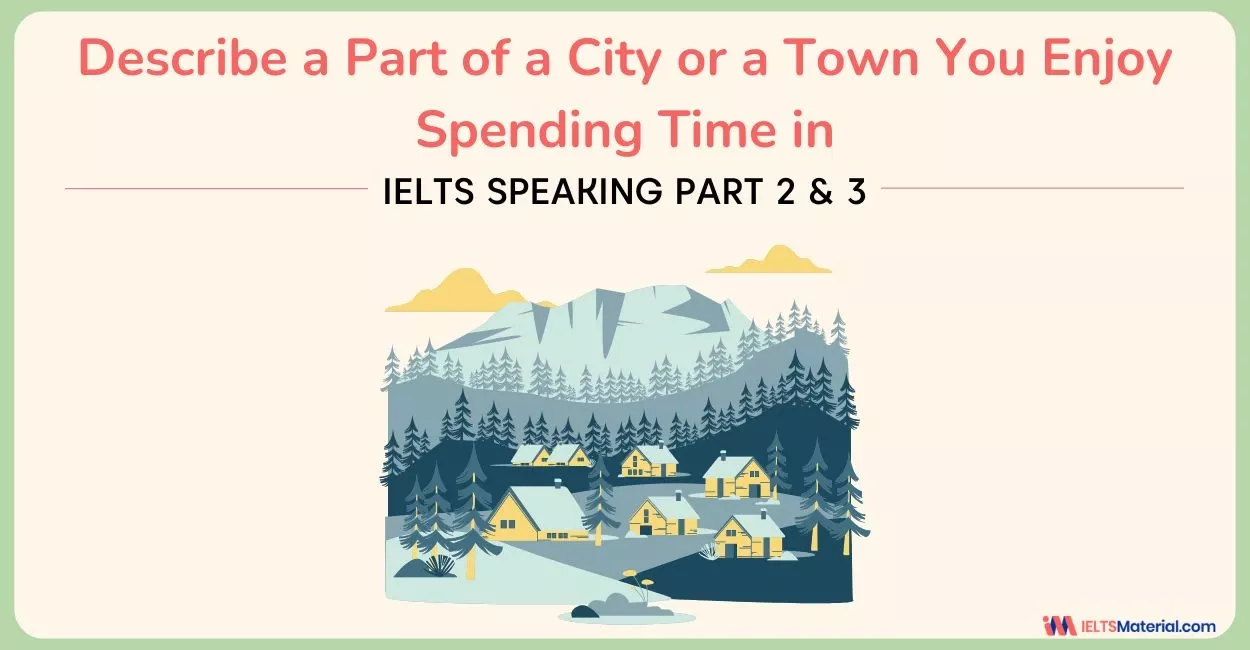
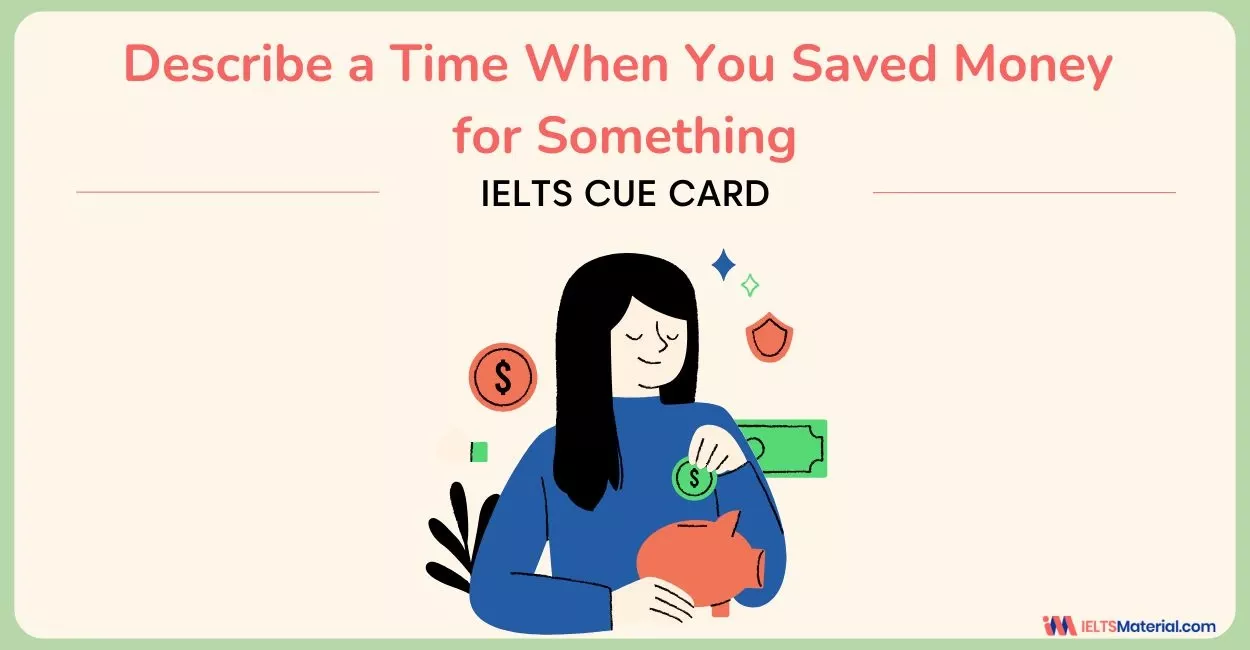

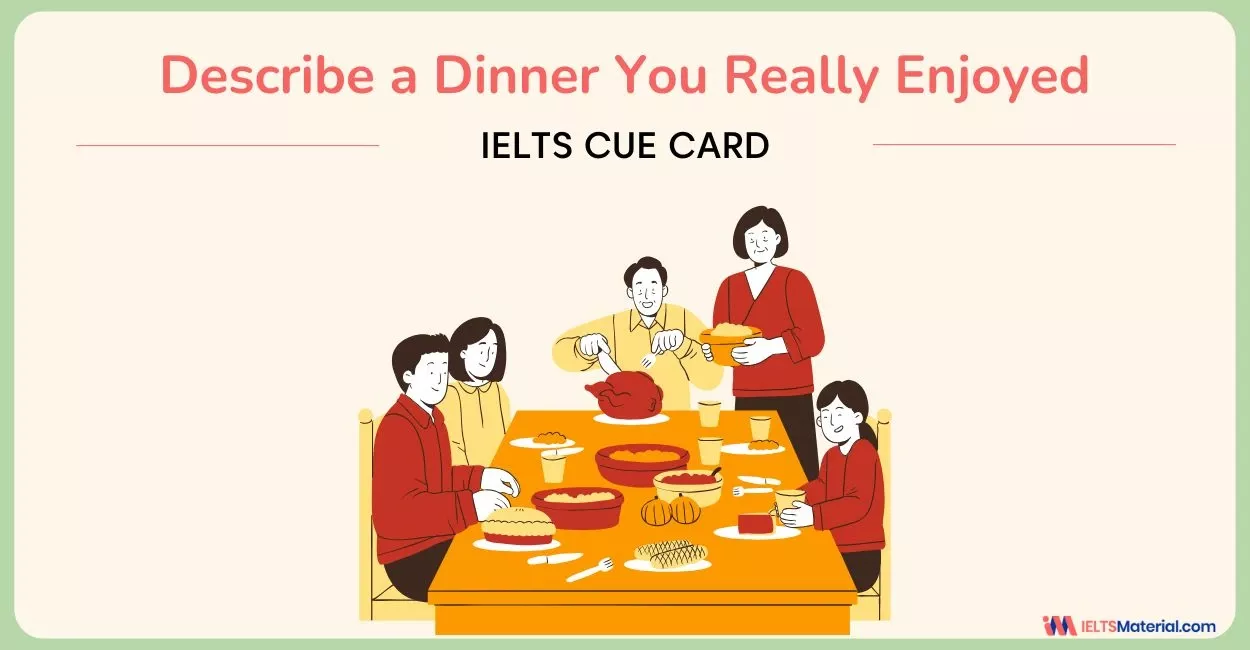
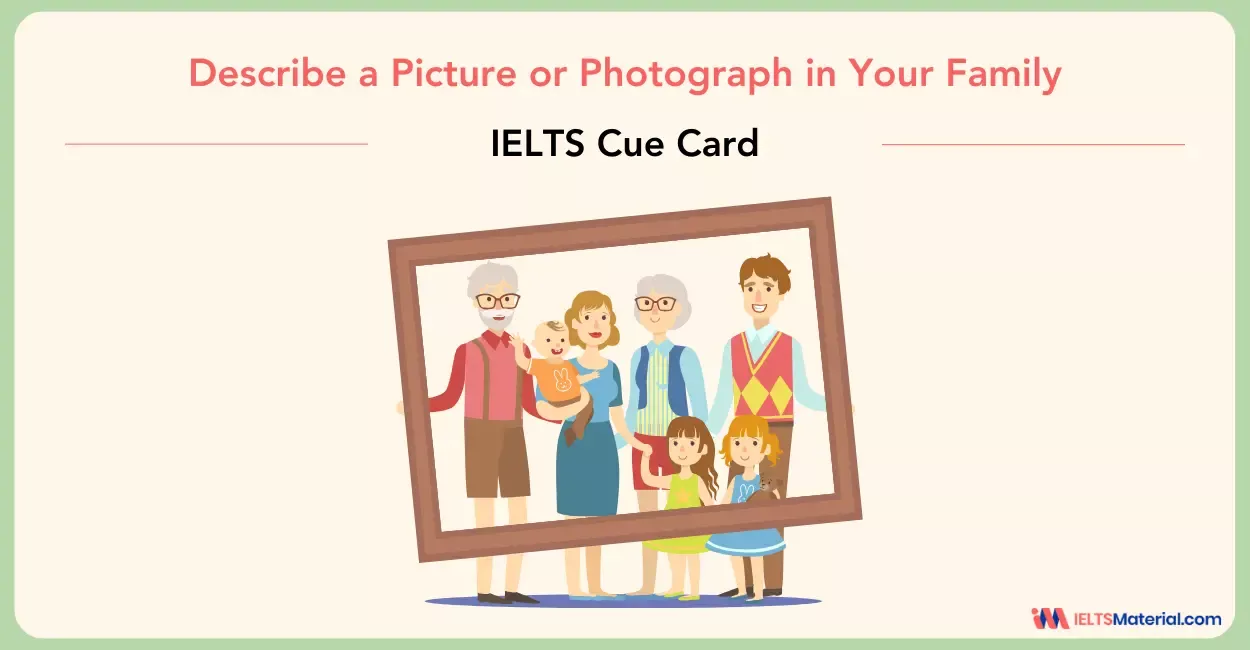


Post your Comments